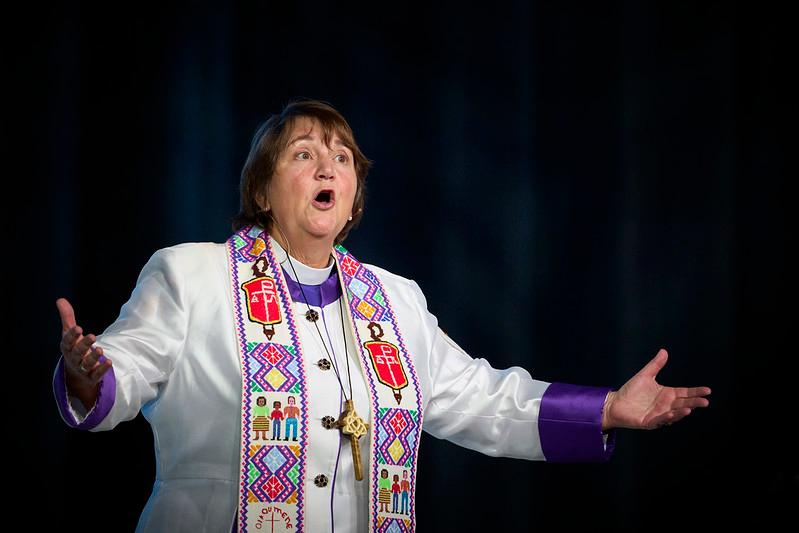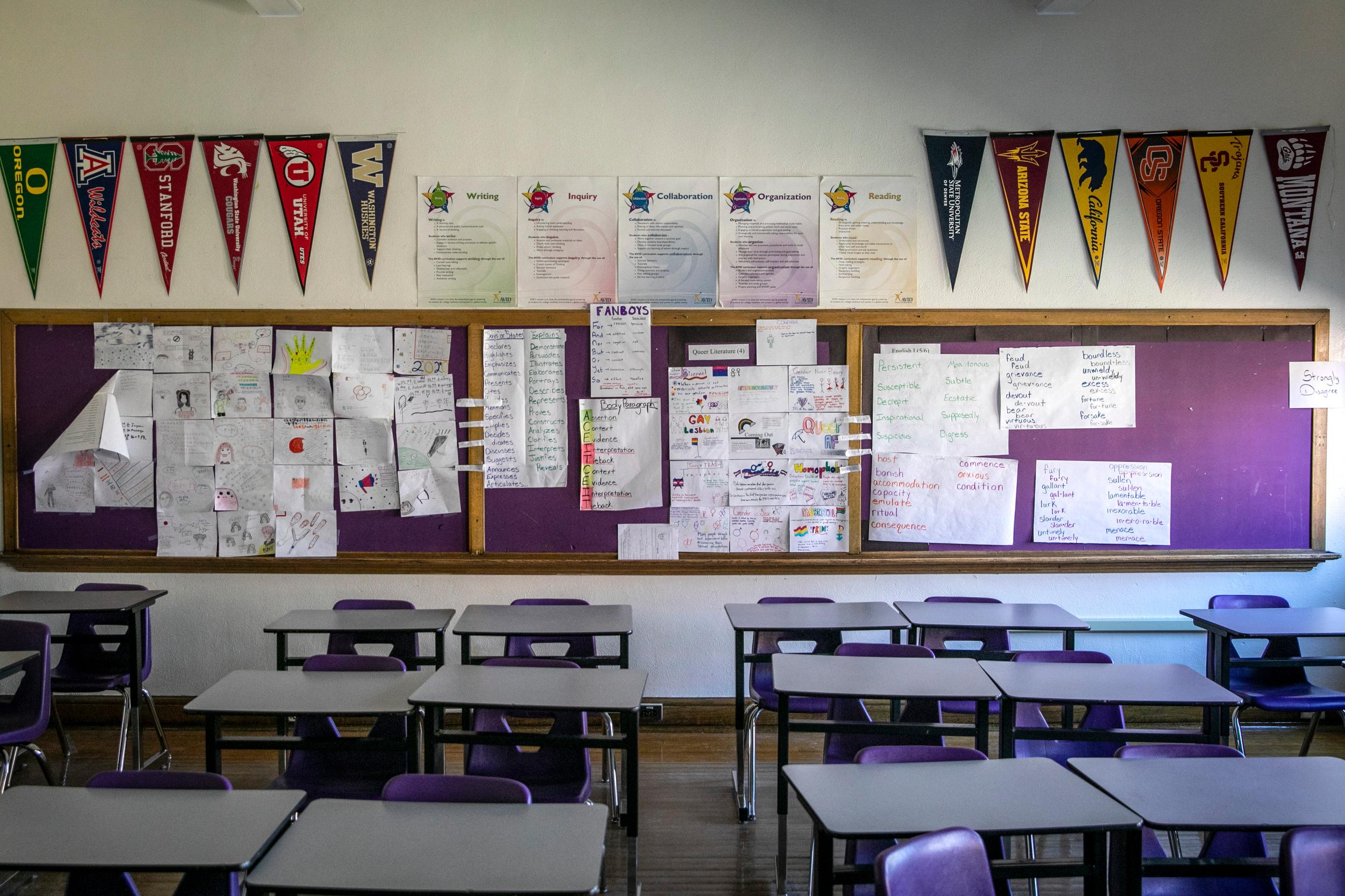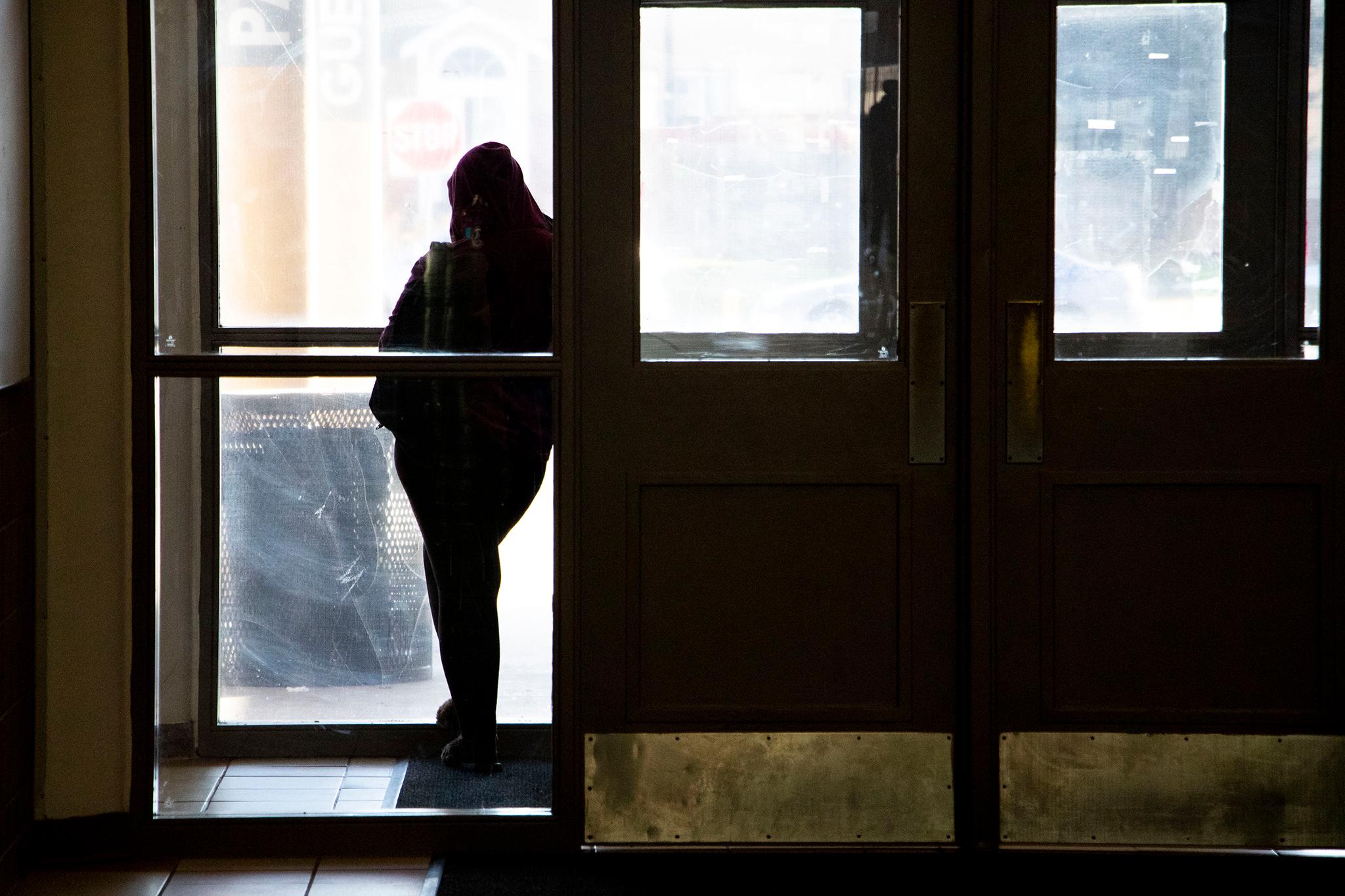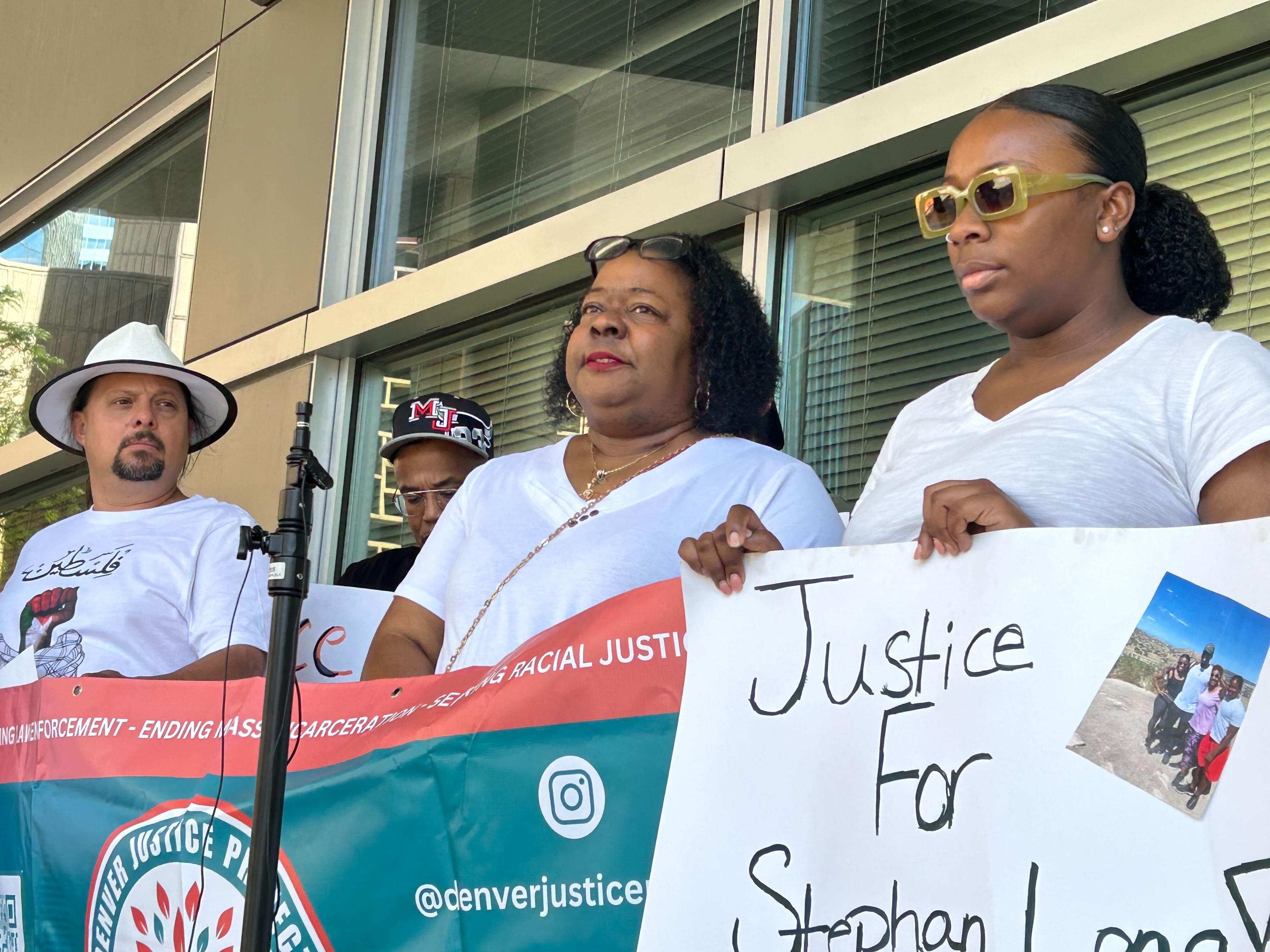
Karen Oliveto was called to the ministry at the age of 11, and yet, instead of feeling she’d made a life-affirming decision, for more than 40 years, Oliveto says a sense of dread has lurked just beyond the stoles she wears at the pulpit.
“Every single morning I've woken up and worried, ‘Is this the day the church will strip me of my ordination?’ Oliveto told Colorado Matters senior host Ryan Warner.
This morning however, Oliveto says she arose without that burden, the result of a seismic change in her United Methodist Church. After more than 40 years of banning gay clergy members, on Wednesday the UMC voted to end the practice, meaning Oliveto, the openly gay bishop of the church’s Mountain Sky region which includes Colorado, has at last been accepted.
“For all of us who are queer, this is a great time of celebration and affirmation, knowing that we could bring our full selves into ministry to care for the people that we are entrusted with,” Oliveto said from the conference where the vote was taken. “It's been so amazing. The whole tone here is totally different; people are listening to each other. They're learning from each other across great diversity. And we're all just celebrating.”
The change comes at a time of declining membership in the UMC. From 1990 to 2021, membership went down from around 8.8 million to 5.7 million. In addition, the number of congregations that chose to disaffiliate went from 1,800 in 2022 to about 5,000 in 2023.
Oliveto said 38 churches in the Mountain Sky region disaffiliated during that period.
“That was the pathway that was open to them; if they could not in conscience live with that kind of diversity (around sexuality), there was a pathway out for them to choose,” Oliveto said. “Here's what's funny: God is going to keep creating queer kids.
“So they might think they have solved the matter for now, but someone in their Sunday school is going to hear that God loves them. Someone who's growing up in their churches is going to hear a call to ministry and the issue is going to come back and they're going to have to rethink where they are on this matter.”
In the conversation with Warner, Oliveto also discussed other pending changes in the church, including the decision to replace the denomination’s official Social Principles with a new document that no longer calls the “practice of homosexuality … incompatible with Christian teaching” and that now defines marriage as between “two people of faith” rather than between a man and a woman.
Read the interview
The following transcript has been edited for length and clarity:
Ryan Warner: Obviously, there were queer clergy serving; you're living proof. But you were doing so in the eyes of the church, I suppose, illegitimately. What does this mean to you and what does this mean for you?
Bishop Karen Oliveto: Right. We all took great risks in order to live out our call in the church. I had my call to ministry when I was 11 years old, and the church suddenly made that call conditional. So for 42 years that I've been ordained, I have lived every single morning, I've woken up and worried, "Is this the day the church will strip me of my ordination?"
And you know what? I woke up this morning and didn't carry that burden. For all of us who are queer, this is a great time of celebration and affirmation, knowing that we could bring our full selves into ministry to care for the people that we are entrusted with.
Warner: You spoke with me about five years ago, after the last general conference, and the ban on gay clergy had been upheld. What changed between then and this vote, which was overwhelming, like 93 percent?
Bishop Oliveto: 93 percent. What happened was there was some parliamentary maneuvering that took the church in such an unexpected and ugly direction. And it not only reaffirmed anti-gay stuff, it tightened it. It even created further anti-gay legislation.
Well, the church rebelled. People said, "I don't recognize this church. This isn't the church that raised me, that taught me about God's love and that Jesus loves everybody." Over the last five years, there's been a steady movement of people saying, "Look, God's grace is available to all people." God is an incredibly creative God, and that creativity shows up in the diversity in the human family. People came here ready to reclaim the church.
Warner: I want to note that membership in the United Methodist Church, the third largest in the United States, has been declining. From 1990 to 2021, it's down from about 8.8 million to 5.7 million. The number of church elders has declined by more than half. Most recently, it's thought there are two reasons. One is the pandemic and the other is this controversy. One study says 1,800 congregations disaffiliated in 2022, close to 5,000 in 2023. Is it all harmony and roses?
Bishop Oliveto: We did see an exodus in the US, over 20% of our congregations. And in the Mountain Sky Area, we lost 38 churches. But those who remain are all in.
We have many ways churches could leave, but there was a specific one that was formed with the traditionalist plan in 2019. That was the pathway that was open to them. If they could not, in conscience, live with that kind of diversity, there was a pathway out for them to choose, and 38 churches in our area did.
Warner: And so what of them?
Bishop Oliveto: Here's what's funny: God is going to keep creating queer kids. So they might think they have solved the matter for now, but someone in their Sunday school is going to hear that God loves them. Someone who's growing up in their churches is going to hear a call to ministry and the issue is going to come back and they're going to have to rethink where they are on this matter.
Warner: I recall five years ago that it was lobbying from the United Methodist churches on the African continent in particular that kept the ban on LGBTQ clergy in place. Do you sense that there's been some change of heart among those folks?
Bishop Oliveto: That's a great question. I think what we've learned is that there were bad faith actors who were extremely well-funded, who weaponized people's lives to create division in the church. Now that those people are gone, there is a unity, even though, but we're not asking for uniformity. And that ban was lifted by 93% of the body. Only like 50 people voted no. So it just says how people were used to continue stirring division in the church.
Warner: And there remains some autonomy locally. So another measure passed that forbids penalizing clergy who perform a same-sex wedding or refrain from performing one. As we record this, delegates are also expected to vote on replacing official verbiage that calls the practice of homosexuality incompatible with Christian teaching. There'd also be a new definition of marriage as between two people of faith rather than man and woman. To those earlier points, the notion that you can't be penalized for not holding a same-sex ceremony, is that autonomy important to you?
Bishop Oliveto: Well, as a pastor, I've always had that autonomy to say yes or no. Always. If a straight couple comes to me, I have the right to say, “I can't, in good conscience, marry you because of whatever reason.” So it doesn't change that, it helps people remember the rights clergy have always had. And it protects those clergy who, one, feel called to do same-gender weddings, and those who, again, by conscience, feel they can't, just as any of us are able to do for anyone who comes to us for a wedding.
Warner: I thought we might hear from a member of the United Methodist Church who isn't gay, but welcomes this news as an ally, maybe to get a sense for why this matters to the broader Methodist community. So Reverend Jerry Herships leads Applewood Valley UMC in Golden.
I think my wife Laura actually pointed this out, she said, "You get so enraged over any time there's a type of injustice," and not just the big social issues of racism and homophobia. Even when I see somebody being bullied, it just drives me into a rage. And few people have been bullied more than the LGBTQ+ community. So it just enrages me to see that, and especially in my particular line of work. I come from, previous to that, entertainment and no one gave a damn. It just was a non-issue. And then to go into something that was, in theory, to be so holy, and then to see such ugliness really bonded my work as being somebody who's trying to be a good ally.
Herships told me he plans to deliver a sermon on this matter Sunday, in which he'll reflect on the timeline.
It's too big an issue, and it's been too big an issue specifically within the United Methodist Church for too long. This language came into our rule book, our book of discipline, 52 years ago. That's a long time. That's generations of clergy that have been told, "No, you're not right. You're incompatible with Christian teachings.” It makes me want to cry just saying it out loud. It seems like such a horribly offensive thing for an organization to do, and it's in our rule book. We can't deny it, but starting today, we can. Starting today, it's a new day."
Did you have a sense for when the tide was turning?
Bishop Oliveto: The response to the traditional plan in 2019, to see that response across the country, not just where you would think, like in urban settings, but in towns and villages across the United States. The outcry was huge. And when that happened, it's like,”Oh, fasten your seatbelts, we're in for an interesting journey together.”
Warner: Just to be more specific, was there a place that surprised you?
Bishop Oliveto: Well, this is what surprised me, Ryan. There was all this uproar over my consecration as a bishop. I needed a bodyguard for 18 months. And the people of the Mountain Sky Conference, they didn't always understand. What is this? A gay bishop, what's that? A married gay bishop, no less. But we grew together, we sang together, we experienced the sacraments together, we did ministry together.
And then 2019 happened, and people from tiny towns across our area were like, "Bishop, I can't believe the church is anti-gay." How quickly their attitudes had changed because they experienced with me, we together experienced growth as a church, as a people within the church. And I think that's what was really surprising. People forgot that there was a ban.
Warner: Gosh, you know what it reminds me of is Harvey Milk saying, "Come out." The most powerful thing you can do is come out. People just need to know gay people.
Bishop Oliveto: That's right. And I think Ruth Bader Ginsburg said the same thing. She said, "Why LGBTQIA rights have increased exponentially while civil rights for people of color has been incremental is because we're a largely segregated society, but everyone knows one who's gay, as their kid, as their favorite teacher, as their youth pastor." That proximity means you're going to stand with people and you're going to protect their rights, and you're going to want a better world for them.
Editor's Note: A previous version of this story incorrectly named Reverend Jerry Herships' church. It is Applewood Valley UMC.








